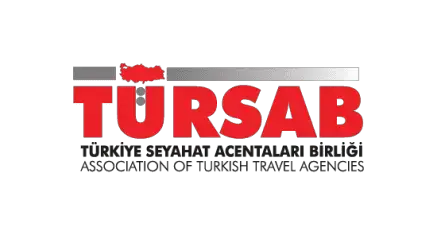I think that hair is many people’s pride and joy, so the last thing someone wants to do is shave the last bit of hair that they have. Thankfully, you can get a hair transplant without shaving. Read more about how it works, pros, cons, expectations and more in this article.
Hair transplant without shaving is a viable option, so you should definitely consider this.
How Does a Hair Transplant Without Shaving Work?
If you think that hair transplantation is not for you because of the primary fact that you must shave your head, you can rest easy knowing that you can now get a hair transplant without shaving your entire head. Hair transplants have become very popular thanks to the ever-evolving medical field, introducing Follicle Unit Extraction (using Neograft technology) and Direct Hair Implantation.
There are the two types of no-shave hair transplant techniques.
Table of Contents
Unshaven FUE transplant
The traditional FUE (follicular unit extraction) hair transplant is one of the most commonly-performed hair restoration methods due to its non-invasive nature and short downtime. No shave FUE hair transplant is performed by harvesting follicles from thin bands of hair on the scalp using Neograft technology to avoid shaving any part of the patient’s head.
Unshaven DHI transplant
During a non-shaven DHI (direct hair implantation) hair transplant technique, the strands of hair are trimmed and the transplantation is performed using a choi implanted pen, in which hair follicles are inserted one at a time into the recipient area (hair loss area) of the scalp.
These techniques are created for patients who cannot afford to have noticeable signs of hair transplant surgery or long recovery time after the procedure. Both are highly-specialised techniques in which the surgeon carefully extracts donor hairs without shaving the entire head. The medical professional will trim the donor hairs and transplant the follicles into the recipient area (balding area) for immediate results. What’s great news for patients, is that they get to keep their favourite hairstyle while the surgery results are not visible.
What To Expect From a Hair Transplant Without Shaving
After a hair transplant without shaving procedure, your scalp may feel sensitive and sore, and you might need to take some painkillers to numb the pain, antibiotics to fight the risk of infection and anti-inflammatory medications to control any swelling.
It is completely normal for the transplanted hair to fall out 2 to 3 weeks after these procedures, as this makes way for new hair to grow. New hair growth will only be visible around 6 months after the procedure, with the final hair transplant results showing at around 1 year after a hair transplant resulting in naturally-looking hair.
Here are a few side-effects that you may experience after a hair transplant without shaving that are also completely normal:
- Infection
- Bleeding of the implantation area
- Itching
- Bruising
- Swelling of the scalp
- A crust over the impacted area
- Ingrown hairs
- Inflammation of hair follicles
- Folliculitis, which is infection of the hair follicles
- Patches of hair that seem unnatural
If you are struggling with any of these side-effects for a period longer than 2 to 4 weeks, you should contact your doctor for a consultation. It is possible that you might need more than one session, depending on your bald areas and desires for a fuller head of hair. Follow-up sessions will be scheduled several months after your initial procedure to allow full recovery of each transplant.
Benefits of Hair Transplants Without Shaving
There’s a lot to look forward to when getting a hair transplant without shaving, some of these benefits include:
- Shorter recovery period
- Patients can carry on with their normal routine and get back to work in no time
- No visible scarring after regrowth of new follicles.
- Minimum scabs and crust formation
Downfalls of Hair Transplants Without Shaving
As with most things in life, there are downfalls to hair transplants without shaving too. Some of the downfalls may include:
- These techniques might be very time consuming depending on the bald areas
- These techniques might become pricey, depending on the bald areas and the amount of procedures needed.
As with any cosmetic procedure, these transplants are permanent. It is empirical that you consider all the hair transplantation advantages and disadvantages before making your choice. The benefits of hair transplants without shaving outweigh the disadvantages, and time and money is a small price to pay for longer lasting, fuller hair.

Hi! I’m Sanna, your expert in achieving the best results from hair transplant procedures and maintaining long-lasting vitality in your hair.
Feel free to connect with one of IdealofMeD’s specialists today! Don’t hesitate to reach out if you have any questions or need guidance regarding hair transplant results. We’re here to support you on your journey to achieving the best possible outcomes for your hair transplant and maintaining its vibrancy!
- we are online
Perfect Candidates for a Hair Transplant Without Shaving
If you are wondering whether you’re a good candidate for a hair transplant procedure without shaving, you might qualify if you are suffering from hair loss and:
- Are in good overall health
- Are above 25 years of age
- Have no medical conditions that might affect surgery (Diabetes, blood clotting, high blood pressure)
- If your hair loss is natural and not caused by stress or medical conditions
Consult with your medical professional to determine if you are a suitable candidate for a hair transplant without shaving. Take advantage of hair transplant clinics that offer free consultations.
Hair Transplant Without Shaving Overview
Definition, Evolution, and Progress of Unshaven Hair Transplant
Unshaven hair transplant, also referred to as U-FUE (Unshaven Follicular Unit Extraction), signifies a groundbreaking approach in the realm of hair restoration. This technique involves the extraction of individual hair follicles from a donor area, typically the back or sides of the head, and their subsequent implantation into the balding or thinning areas, all without necessitating the shaving of the recipient or donor area.
The idea of unshaven hair transplant emerged in the early 2000s in response to patients’ apprehensions about the aesthetic consequences of shaving their heads for the procedure. Over the years, it has witnessed significant enhancements, becoming more efficient and less invasive. The creation of specialized tools and techniques has facilitated the execution of the procedure without shaving, thereby preserving the patient’s existing hair and ensuring a more natural appearance during the recovery phase.

Factors and Circumstances Influencing the Preference for Unshaven Hair Transplant
The preference for unshaven hair transplant is influenced by several factors. Primarily, the aspiration for discretion and maintaining a normal appearance during recovery serves as a significant motivator. I think this holds especially true for individuals in the public eye or those who cannot afford significant downtime.
Secondly, the minimal scarring and less invasive nature of the procedure make it an appealing choice for those concerned about post-operative discomfort or the aesthetic result. Furthermore, the technique is ideal for individuals with shorter hair, as it eliminates the need for shaving and allows for a more natural-looking outcome.
Lastly, while the unshaven method may demand more time and skill, the personalized approach to follicle extraction can contribute to a higher graft survival rate, ultimately yielding a denser, more natural-looking head of hair. This has led to an increasing number of patients and surgeons alike favoring the unshaven hair transplant method.
In-depth Examination of Hair Transplant Without Shaving
Prior to the non-shaving hair transplant procedure, several crucial steps are undertaken to ascertain the patient’s suitability and to ready the scalp for the operation. Initially, an exhaustive consultation is carried out to evaluate the patient’s medical background, lifestyle habits, and personal expectations. The physician thoroughly inspects the patient’s scalp and assesses hair density to strategize the procedure.
The patient is counseled to abstain from certain medications and substances, including alcohol and nicotine, which can potentially disrupt the healing process. Comprehensive blood tests are performed to eliminate the possibility of any underlying conditions that could hinder the success or recovery of the procedure.

Step-by-Step Procedure in Detail
The non-shaving hair transplant procedure is an intricate process that demands a high degree of proficiency. The procedure is initiated with the administration of local anesthesia to desensitize the donor and recipient sites. Utilizing a state-of-the-art tool, the surgeon extracts individual hair follicles from the donor site, typically located at the rear of the scalp, without the need to shave the hair.
I have to say that these follicles are then meticulously prepared under a microscope to guarantee their viability. The recipient site is subsequently prepared, and the follicles are implanted one at a time, adhering to the natural direction of hair growth to achieve an aesthetically pleasing result. The duration of the procedure can span several hours, contingent on the number of grafts needed.
Our Overall Thoughts on Getting a Hair Transplant Without Shaving
If you are suffering from hair loss, and you have tried common hair growth treatments without luck, it might be a wise choice to consider one of the hair transplant without shaving techniques. Once you have determined that you are a suitable candidate, you could expect positive results with one of these techniques. These no-shave hair transplant techniques provide fast and discreet healing with minimal recovery and scarring.
After only a couple of months you will have a natural, full head of hair without the evidence of a hair transplant. A hair transplant without shaving certainly is a great option to consider if you are in the process of making a hair transplant decision.
More Hair Transplant Treatments Articles
Frequently Asked Questions
An experienced medical professional can perform a hair transplant without shaving with success rates of 95 – 98%.
There is no limit on the number of no-shave hair transplant procedures a person can have. It remains important for the patient to allow enough time for each transplant to heal completely before continuing with the next procedure.
The best age for a no-shave hair transplant is usually between 25 and 30, because the body has a high immune system and the hair loss process stops by this age.
Most medical professionals will recommend that you wait at least ten days before wearing a hat or cap.
Yes, no-shave hair transplants look natural when performed well on appropriate candidates.
- we are online
Schedule For Later
About IdealofMeD
Sources & expertise
Information checked by an expert

Sanna El Mouden
The information on this page is checked by Sanna El Mouden. She’s an expert on hair loss & restoration and often asked to share her knowledge. For example for Healthline and Lifehacker.
Awards & accreditations



IdealofMeD Hair Transplant
We’re you’re number 1 destination for a hair transplant in Turkey. Don’t forget to check out our other pages about hair transplant results, or read up on our exclusive DHI & FUE Combination Surgery.



